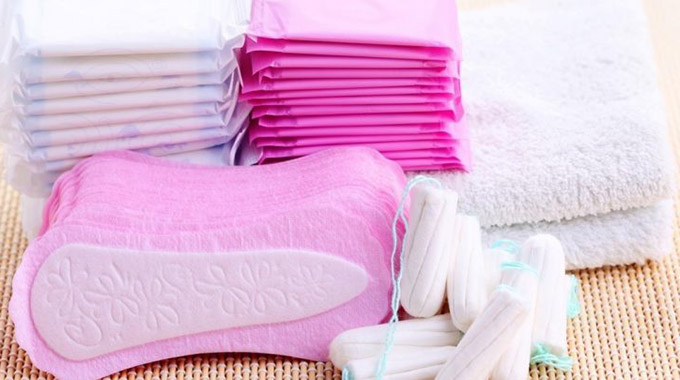
The ManicaPost

Samuel Kadungure and Eunice Sibanda
THE Ministry of Primary and Secondary Education is finalising modalities to distribute more than 300 000 sanitary pads to needy schoolgirls in Manicaland so that they can manage their monthly periods hygienically.
As Zimbabwe joins the rest of the world in commemorating Menstrual Hygiene Day today, disadvantaged schoolgirls continue to face challenges in accessing menstrual hygiene products such as sanitary pads, cotton wool, menstrual cups and period panties.
The Government has already availed a $200 million budget through the Ministry of Primary and secondary Education to cater for the provision of sanitary wear for schoolgirls.
Manicaland Provincial Education Director (PED), Mr Edward Shumba, said Government will soon distribute 134 093 disposable pads and 149 300 re-usable pads to Manicaland’s schoolgirls. The programme, which is expected to cover all schools in the province, will also see 67 301 panties and 18 000 bars of washing soap being distributed. Girls aged between 10 and 19 years are expected to benefit under the programme.
Mr Shumba said development partners are also assisting rural schools with girl-child friendly toilets that have bathrooms as part of a broader spectrum to address challenges faced by resource-poor schoolgirls and enhance their ability to focus on their schoolwork. He said lack of menstrual knowledge, poor access to sanitary products and a non-facilitating school environment is making it difficult for girls to attend school during their monthly periods.
“Menstrual hygiene education, accessible sanitary products, pain relief and adequate sanitary facilities at schools will improve the schooling-experience of our adolescent girls in Manicaland. The Government is working on this programme to assist schoolgirls from poor backgrounds with sanitary wear as we appreciate the challenges they are having. This is a very noble programme, and the Government is moving in the right direction and responding to the challenges on the ground. The tender was awarded and the contractor brought in some samples and we made our input,” said Mr Shumba.
“The health coordinators at all our schools have been trained on menstrual hygiene and this intervention was prompted by the schoolgirls’ failure to attend school during their monthly cycles. Once rolled out, we expect the attendance of schoolgirls to improve and this will enable us to meet our goal of availing quality education to everyone,” said Mr Shumba.
He said disadvantaged schoolgirls are often ridiculed at school when they opt for less effective alternatives of sanitary wear, thereby forcing them to stay at home during their periods.
“This has a psychological effect. Imagine being ridiculed by your peers. This certainly affects their academic performance. We are also reaching out to the boy-child to appreciate these adolescent changes that affect the girl child at puberty. So the boy child is also being empowered on sexual reproductive health,” said Mr Shumba.
A parent, Mrs Caroline Tapera, said dissemination of menstrual hygiene management information is crucial.
“Menstruation is one of the key changes in a girl’s life and it affect her entire future, depending on how it is managed. Imagine a girl who spots her uniform with blood after using a rag to as a pad. It affects her self-esteem. Our culture makes it difficult to discuss menstruation openly. This limits access to important information about the functions of the female body. Information on menstrual health management should be availed to all,” she said.
Ms Faith Masawi said donations of sanitary wear and panties should go together.
“Underwear is one of the least donated items to less privileged people, and yet most of them go without them. Donating underwear and sanitary wear will end period poverty. All women and girls should be able to maintain their normal lifestyles during their periods. However, this can only happen when those who cannot afford to buy sanitary wear are given these,” she said.
She added: “Women and girls use at least US$1 and US$2 for a month’s supply of sanitary pads or cotton wool. It is becoming more difficult for them to manage their periods with dignity, especially as some parents and guardians have lost their sources of income due to Covid-19.”



